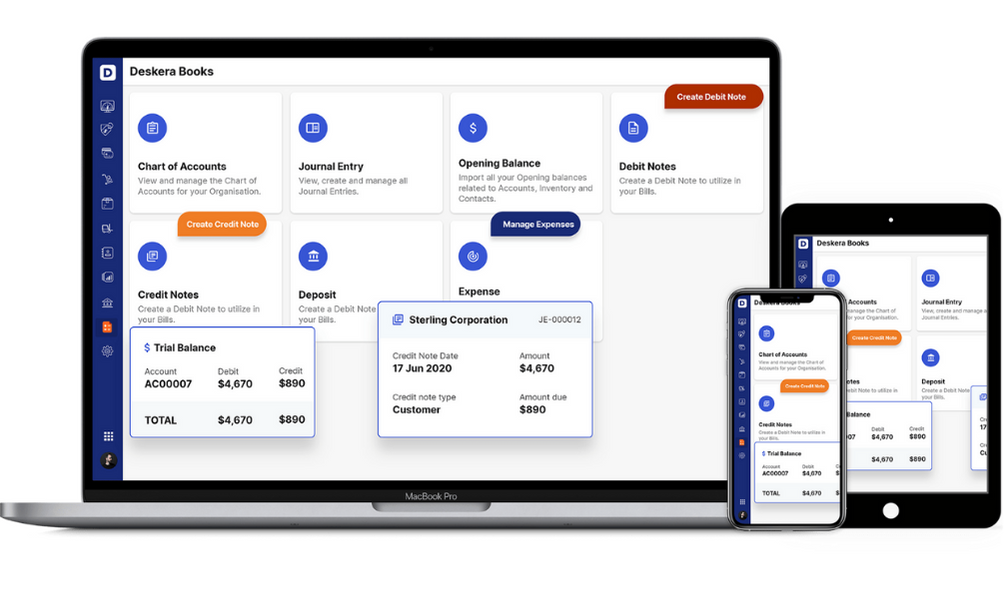If you are planning to start your own business or are a sole proprietor, forming an LLC in Texas could be the best possible solution. Furthermore, when you are looking to reduce your legal liabilities to a minimum, LLC could be the ideal option for you.

An LLC, or Limited Liability Company, could be the best option when it comes to the type of company you want to set up your business with. This is because it combines the finest features of corporations, sole proprietorships, and partnerships into a single company organization. It not only provides owners with liability protection but also offers a flexible management structure and tax benefits.
We shall be diving into the topic of LLC in this article, along with the other components related to it. Here is what we shall learn:
- What is an LLC?
- Benefits of Starting an LLC
- Disadvantages of Forming an LLC
- How do I Form an LLC in Texas?
- Steps to follow after forming Your Texas LLC
- Compliances for Texas LLC
- FAQs
- How can Deskera Help You?
- Key Takeaways
What is an LLC?
An LLC is an entity that has one or more owners known as members. Unless they choose a separate governance framework known as ‘manager management’ LLC members normally collaborate as the managers of the company and share equal responsibilities within the company framework.
The term, limited liability, refers to the fact that all LLC owners are protected from personal liability for corporate debts and claims. This implies that if the company is unable to pay a creditor, such as a supplier, lender, or landlord, the creditor cannot lawfully seize an LLC member's home, car, or other personal belongings. Even though only LLC assets are utilized to pay off corporate debts, LLC owners only risk the loss of the money they deposited in the LLC.
Benefits of Starting a Texas LLC
Forming an LLC in Texas saves you from a lot of legal hazards, and how! The following chart takes us on a tour of the advantages that the LLCs in Texas offer:
Disadvantages of Forming an LLC
Having learned about the advantages, it is also crucial to consider the disadvantages which you may encounter on the way to forming an LLC. Here they are:
How do I Form an LLC in Texas?
You must submit a Certificate of Formation to the Texas Secretary of State, along with a $300 filing fee to form an LLC in Texas. The application can be sent online or by mail. The Certificate of Formation is a formal statement that establishes your Texas limited liability company. Read our procedure in this section to get started on forming an LLC in Texas.
Broadly, here are the steps that define the process of setting up a Texas LLC:
Step 1: Naming Your LLC
The first and foremost assignment is to name your LLC in line with the compliance of naming an LLC in Texas. You must ensure that it can be easily searched by the clients and customers. Here are some more important points that you must remember while naming your LLC:
Naming Guidelines
- The name of your LLC must consist of the term, ‘Limited Liability Company,’ or the LLC., Limited, Company, or Co.
- Your LLC's name cannot contain any words that could be mistaken for a government agency. This includes the FBI, State Department, and Treasury
- Also, there are some words that are restricted, such as a bank, attorney, and university. You may need to do additional paperwork and the help of a licensed professional to add such words in the name of your LLC
- You can review the Texas Secretary of State's recommendations for a complete list of naming requirements
- Check if the name you have thought of is available in Texas. This can be accomplished simply by doing a name search on the Texas Comptroller of Public Accounts portal.
- Also, you must check if there is a URL available for the name you have decided. You will be registering your business name as a web domain. Checking this is important as whenever you plan to register your business for a web domain, you want to be sure that it is not acquired by anyone else.
Step 2: Select a Registered Agent
The next step requires you to select a registered agent who is can be considered your registered agent as your company's point of contact with the government. Registered agents are business entities who accept vital tax forms, legal documents, lawsuit notices, and official government correspondence on your behalf.
An appointment requires written or electronic authorization from a Registered Agent. The following items should be included in the consent statement:
- Your company's name
- An express statement from the individual named that he or she agrees to act as the LLC's registered agent.
- The name of the person who has been assigned the role of registered agent.
- The registered agent's signature
- The execution date
- View the Acceptance of Consent Form 401-A for more information on this requirement, as well as a fillable consent form.
You or any other member from your LLC can serve as the registered agent in the process of setting up the LLC.
Step 3: File the Certificate of Formation
The registration of your LLC will come about by filing Form-25 - Certificate of Formation at the Texas Secretary of State.
- When you set out to file for the Certificate of Formation, you will be required to indicate if your LLC will be member-managed or manager-managed
- Also, if you have an LLC that you are looking to expand to the state of Texas, you will be required to register as a Foreign LLC.
Step 4: Set up LLC Operating Agreement
An Operating Agreement is nothing but the LLC or the company agreement, which is an internal document. It is an official or formal document that lays out the ownership details and the way the company operates or functions. Although it is not mandatory to have an Operating agreement in the case of Texas LLC, it is recommended you go for it.
An operating agreement is critical to the formation of an LLC in terms of eliminating chances of conflicts between the owners.
Step 5: Get an EIN
- An EIN or the Employer Identification Number, also known as FEIN or Federal Employer Identification Number or the FTIN – Federal Tax Identification Number, is issued by the Internal Revenue System (IRS).
- It is a nine-digit number that helps identify a business entity
- It also assists in tracking a business’s tax reporting
- You need it to open a business account at the bank for your company
- It is also required for State and Federal tax purposes
- It is also required when you hire people for your company
- You can obtain an EIN either online or through the mail from the IRS, free of charge
This concludes the procedure to form an LLC in Texas.
Steps to Follow after Forming your Texas LLC
This section will explain some of the most important steps you need to take once you have formed your LLC.
- Separate your personal and business assets
- Get a Business Insurance
- Get a Business Website
- Publicize your business
Separate your personal and business assets
By not separating your personal assets from your business, you put your personal assets like your home, personal vehicle, and bank accounts at risk. Therefore, it is essential to make a clear distinction between the two.
Undertake these measures to further protect your LLC in Texas:
- Open a Business bank account to distinguish your personal and business assets. It also helps you in making your accounting and filing simpler
- Get a Business Credit Card that aids in the categorization and separation of all business expenses for tax purposes at the end of the year.
- It also aids in the development of your business credit score, which is a prerequisite for obtaining business loans in the future
- Allows you to keep track of department spending by providing numerous cards to your staff
- Hire a professional and certified accountant for your business who can oversee all the key financial aspects. They can also help with filing and saving taxes
Get a Business Insurance
Business insurance is a way to allow yourself to focus on building your LLC while managing risks. The following are the most popular types of company insurance:
- General Liability Insurance or GLI is a type of insurance that protects your company from lawsuits. General liability insurance is purchased by the majority of small enterprises
- Professional Liability Insurance covers claims of misconduct and other commercial errors for professional service providers
- Workers' Compensation Insurance is a sort of insurance that covers employees for illnesses, injuries, or deaths that occur while at the job
Get a Business Website
The web is where all the business is happening. It is a must for you to have a website for your business if you want to see your business flourish with each passing day. A huge chunk of your customers and clientele is waiting for you to get online.
Here is what you shall achieve when you take your business online:
- Confirm Legitimacy: A website is the best way in which you can reassure your customers and clients of your business’s legitimacy.
- Easy to Build: With the ease of use and building of a website, you can get your business website created within a couple of hours. It is not only simple but is immensely time-efficient and cost-efficient in the long-run
Publicize your business
You can utilize the various social media platforms to reach out to people. Apart from the online presence, you can also adopt techniques such as press releases. They are one of the most effective ways to advertise your company. They're also one of the most cost-effective solutions because they do the following:
- Establish your brand's online presence and improve your website's search engine optimization to attract more customers
- A press release is a one-time effort and financial investment
- It generates publicity and has long-term advantages
Compliances for Texas LLC
This section highlights some of the compliances that you need to be mindful of. Let’s take a look:
- Federal Tax Requirements
- Licenses and Permits
- Texas LLC Tax Requirements
- Annual Report and Franchise Tax
- Hiring
Federal Tax Requirements
Based on the type of your LLC, you will be required to file one or more types of taxes. Here is the list:
Sales Tax: If your business sells a physical product, you will need a seller’s permit. This permit is obtained from the Texas Comptroller of Public Accounts and also enables a business to collect sales tax.
Employer Tax: This includes the Unemployment Insurance Tax. You will need to register for this tax through Texas Workforce Commission
Licenses and Permits
In order to run a limited liability company in Texas, you must follow federal, state, and local requirements. Based on the type of business, you may require health permits, construction permissions, signage permits, and other permits. The cost of obtaining a business license or permit varies based on the type of license you want.
Texas LLC Tax Requirements
LLCs usually report their income through these forms:
- Form 1065 Partnership Return which is usually utilized by multi-member LLCs
- Form 1040 Schedule C, which is usually utilized by single-member LLCs, use this form
Annual Report and Franchise Tax
The Texas Comptroller of Public Accounts requires LLCs to file an annual report and pay the Franchise Tax. You can file these through the Texas Comptroller's website.
Hiring
For hiring employees for your Texas LLC, will need you to comply with the following:
- Verify that new hires are eligible to work in the United States
- Employees should be reported to the state as new hires
- Employees should be covered by workers' compensation insurance
- As an employer, you must ensure that the employee taxes are withheld
- Print compliance posters and put them in prominent locations throughout your workplace
Minimum Wage in Texas is $7.25 every hour.
FAQs
Here are some questions you may want to know the answers to.
Q: How much does it cost to establish an LLC?
A: Although the price varies from one state to the other, it usually costs between $100 and $200 if you choose to do all of the labor yourself. If you hire a lawyer, the costs may shoot up. The majority of the expense is the charge to file your articles of incorporation.
Q: What are the other types of LLCs in Texas?
A: Series LLC, Professional LLC, and Foreign LLC are the other types of LLCs that can be opted for in Texas.
Q: Is there a difference in taxation between limited liability companies and corporations?
A: Yes. In the case of a corporation, profits are taxed once at the corporate level and then again when they are dispersed to owners or shareholders. This is also termed double taxation, which most companies frown upon. However, the Limited liability firms are taxed only once. They allow profits to be transmitted directly to investors.
Q: What is the distinction between a sole proprietorship and an LLC?
A: In the scope of a sole proprietorship, there is a sole owner who owns a firm and all of its assets without any distinct commercial entity. The sole proprietor takes care of all the debts related to the business debts and litigation. This means that creditors or litigation complainants can obtain access to the proprietor's personal assets in order to accommodate a debt or judgment.
An LLC is a distinct legal entity, and it owns the company along with all of its assets. The LLC is managed by its members, and in most cases, LLC members are not individually liable for LLC debts or lawsuits.
Q: What exactly is a professional LLC?
A: Individuals engaged in specific professional practices are not permitted in some states to form conventional LLCs. Consequently, they must incorporate professional limited liability companies. These are LLCs that are specifically established for licensed professionals such as lawyers, doctors, architects, engineers, accountants, and therapists. The primary distinction between professional and regular LLCs is that all members of a professional LLC must be licensed professionals.
Q: Is there a minimum age requirement to form an LLC?
A: Several states' LLC statutes restrict minors under the age of 18 from participating as organizers. However, nothing stops a minor from becoming a member of a limited liability company (LLC).
How can Deskera Help You?
Deskera Books is an online accounting, invoicing, and inventory management software that is designed to make your life easy. A one-stop solution, it caters to all your business needs from creating invoices, tracking expenses to viewing all your financial documents whenever you need them.

Key Takeaways
Key points from the articles:
- An LLC is a company entity that has one or more owners known as members
- Unless they choose a separate governance framework known as ‘manager management,’ LLC members normally collaborate as the managers of the company and share equal responsibilities within the company framework
- The term ‘limited liability’ refers to the fact that all LLC owners are protected from personal liability for corporate debts and claims
- If the company cannot pay a creditor, such as a supplier, lender, or landlord, the creditor cannot lawfully seize an LLC member's home, car, or other personal belongings
- Personal asset protection, simplicity, pass-through taxation, flexible ownership, flexible taxation, management options, credibility are some of the benefits that the LLC offers
- Being expensive to set up and lack of initial investor capital are the two commonly encountered disadvantages of forming an LLC
- The first and foremost assignment is to name your LLC in line with the compliance of naming an LLC in Texas. Ensure it has LLC, Company, or Co. with the name. Avoid restricted words
- Select a Registered Agent who accepts vital tax forms, legal documents, lawsuit notices, and official government correspondence on your behalf
- Filing for the certificate of formation is the next step. Here, you will be required to indicate if your LLC will be member-managed or manager-managed
- Set up an LLC operating agreement. An operating agreement is critical to the formation of an LLC in terms of eliminating the chances of conflicts between the owners
- Finally, get an EIN – Employer Identification Number, a nine-digit number that helps identify a business entity
- After you have set up your LLC, separate your personal and business assets, get business insurance, get a business website, hold a press release for publicity of your business
- Also, adhere to the compliances prescribed for Texas LLCs, such as following federal, state, and local requirements
Related Articles













